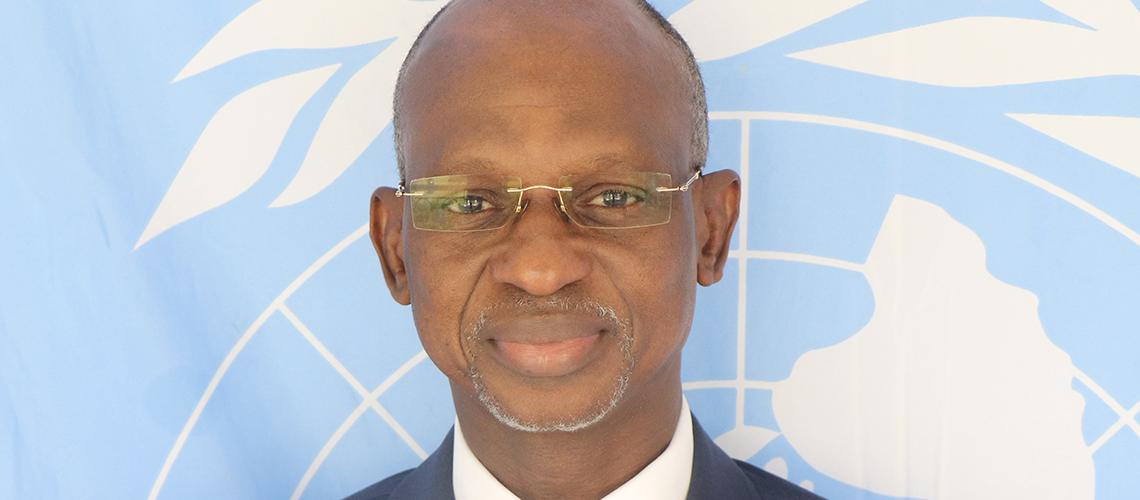
In 2020, the Government of Senegal initiated the development of a national strategy for disaster risk reduction (DRR) working closely with the UN System and the World Bank.
In the midst of the COVID-19 pandemic, the Government with support from the UN Resident Coordinator’s Office, led a capacity diagnosis to identify capacities and gaps in DRR and climate change adaptation, adapting the CADRI Partnership methodology to these exceptional circumstances.
We interview Siaka Coulibaly, UN Resident Coordinator in Senegal, who shares his experience working with CADRI on the first hybrid capacity diagnosis.
Please tell us about your experience with the CADRI capacity diagnosis in Senegal. In your opinion, what worked and what didn’t?
Siaka Coulibaly: The outbreak of the COVID-19 pandemic and the floods caused by heavy rains in September 2020 have shown the importance of having a disaster risk reduction framework and conducting the capacity diagnosis exercise. CADRI played a critical role in the process of assessing national capacities to reduce disaster risk reduction. Through this exercise, the UN System in Senegal has been working in a coordinated and coherent manner to support the Government in strengthening its disaster risk reduction and climate change capacities following a multi-sectoral approach and inter-agency process. Three multi-disciplinary teams composed of more than 20 experts from the Senegalese Government, the UNCT, and external partners conducted the diagnosis starting in December 2020. In total, more than 36 organizations from various sectors (agriculture, nutrition, social protection, health, housing, urban planning, environment) were visited, showing the comprehensiveness of the process.
The COVID-19 pandemic created some challenges in the diagnosis process. For example, planned fact-finding missions across the country to enrich the assessment with a regional perspective had to be cancelled. Despite these difficulties, the team was able to produce a strong report that will greatly contribute to the development of the National Strategy for Disaster Risk Reduction.
What added value does the CADRI process bring to the UN system and the country?
Siaka Coulibaly: The CADRI framework and process helped strengthen a coherent and coordinated approach to disaster risk reduction within the UN System in the country. At the same time, the CADRI process has helped improve the collaboration between the UN and the Government by laying the foundations for a network of DRR experts that will contribute to the development of Senegal’s National Disaster Risk Reduction strategy. CADRI was able to bring together, in record time, experts with complementary capacities and skills, not only from the Government, UNCT and Regional Offices but also from civil society and the private sector. CADRI's support in ensuring coherence between all actors involved created a positive and collaborative environment and space for everyone to bring their point of view and expertise.
The Sendai Framework provides countries with critical guidance but CADRI was able to customize the capacity diagnosis methodology based on the Government’s needs. Thanks to its field experience and advisory support, CADRI provided a framework for the teams of evaluators from different backgrounds to have a harmonized approach to better understand the Senegalese context and adapt their evaluation to the stakeholders interviewed.
Despite the restrictions imposed by COVID-19, this approach facilitated the capacity diagnosis and drafting of the report. The various meetings held with our national counterparts to follow up on the progress of the process also helped build trust with all stakeholders involved. Finally, CADRI's support has enabled the UN in Senegal to operationalize the Secretary General's Prevention Strategy in a coordinated and coherent way.
What are your recommendations on how to strengthen the CADRI offer to make it more relevant in the COVID-19 context?
Siaka Coulibaly: To ensure all stakeholders involved in the diagnosis process have similar knowledge of the CADRI tool for capacity diagnosis and planning, CADRI could consider developing an online training platform to help better understand the tool and related modules covering the different sectors of the assessment (WASH, infrastructure, agriculture, and food security).
In addition, the implementation of a project management software that allows to easily identify the availability of experts at the global, regional, and country-level would help improve coordination.
Finally, the national process would have benefited from dedicated communications support to provide increased visibility. CADRI works and promotes efforts around topics that are not always well known by the general public and, in some cases, by institutions at the national level. Providing better visibility to the work and impact of the CADRI approach in support of the Government could be achieved by developing strategies that included the engagement of the UN Communications Group in Senegal, which brings together communications experts from all UN agencies in the country.
